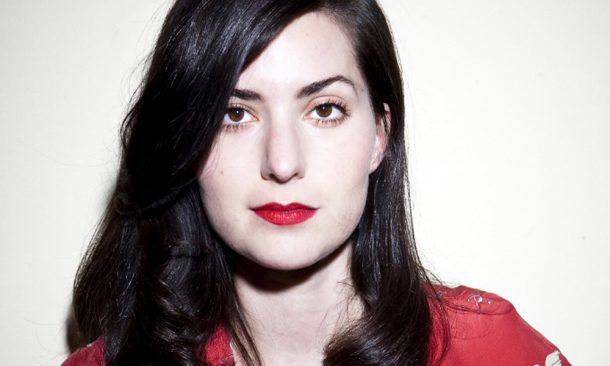NEXT-GEN RISING: Rebecca Zlotowski
A great film school does not a great filmmaker make, but it helps. And in terms of academic cred Rebecca Zlotowski is a force to be reckoned with. She attended the two best schools in France, La Femis (France’s best film school) and the renowned Ecole Normale Supérieure where she was a Lit. major.
Sometimes last year Zlotowski (picture Sylvia Plath crossed with Amélie Nothomb; she’s about thirty) established herself as a director to watch with only two films under her belt. She takes a deliberate approach to filmmaking that looks nonchalant but feels cerebral. In interviews she speaks in unhurried tones about the screenwriting process, the cadence of the shots and the finer points of “Kids” or a movie by Philippe Garrel. One almost gets the impression that if her movies don’t pan out, she’d go on to do other things and make just as important a contribution to them, too. As it were, it’s unlikely that’ll happen. Zlotowski’s knowledge and commitment to filmmaking is the result of years of consistent study and practice and feeds her natural curiosity for cinema.
Screenwriting is the door through which she came unto the filmmaking stage. At La Femis, she took the screenwriting exam and earned her degree this way. It was there also that she met people like Céline Sciamma and Lodge Kerrigan.
After Zlotowski wrote a song called “Grand Central” for pop singer Alizée (VIDEO) a friend suggested that she call her upcoming film that as well.
“Dear Prudence” (“Belle Epine” in French) was her first collaboration with actress Léa Seydoux. It was shown at the Cannes Festival in 2010 in the Critics’ Week selection and got her noticed. She then directed “Grand Central,” which was selected at the Un Certain Regard section at Cannes last year. In “Grand Central,” which stars Seydoux and Tahar Rahim (“A Prophet”) a three-way romance between workers at a nuclear plant peaks and then comes undone. Shooting was done in a real nuclear plant in Austria, Zlotowski shot this movie on both 35 mm and digital, for the indoors scenes, achieving a hybrid–mixing documentary-like realism with fiction–and enigmatic film.
Zlotowski isn’t much for linear types of narration, considering it perhaps a bore when it comes to romantic films. In “Grand Central” her cameras frequently pop inside the walls of the nuclear plant and outside them, taking us in the small town where the nuclear plant workers live and love. She films in that classical auteur style, it’s deliberate and sometimes disorienting when she alternates romantic encounters between Rahim and Seydoux’s characters with scenes of a technical incident happening inside the plant. Zlotowski is everywhere at once.
Absent from “Grand Central” any attempt at the kind of inelegant issues-mongering we so often see nowadays, the director being neither in favor nor opposed to nuclear power. Instead, she uses the nuclear plant to create a contrast with a developing romance to sometimes entertainingly-awkward effect—you almost want to start believing that there’s a connection between romance and nuclear radiation. Zlotowski has the seriousness and the curiosity to become a leading filmmaker.







